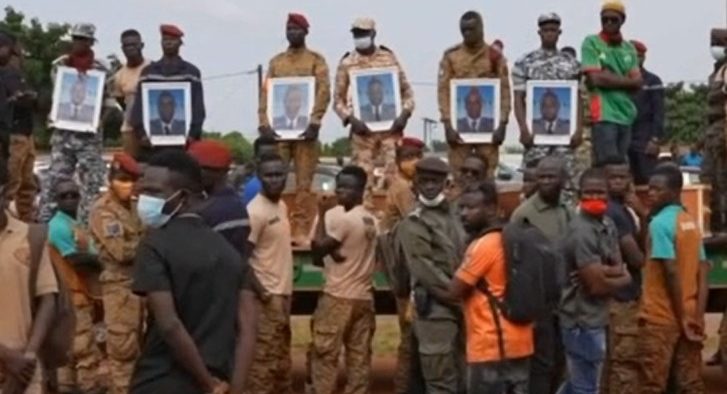Burkina Faso: Escalating Violence by Armed Groups

According to reports, Monday’s attack by an armed group in northern Burkina Faso left approximately fifty soldiers dead. To build lasting peace, Burkina Faso must adopt a coordinated and comprehensive approach that combines security, reconciliation, a return to constitutional order, a robust humanitarian response, and efforts to address the root causes of the conflict.
The Jama’at Nasr al-Islam wal-Muslimin (JNIM) group is believed to be responsible for the assault on the Dargo military base in Boulsa Province. Around one hundred armed fighters reportedly took part in the attack, looting and setting fire to the base after carrying out deadly assaults.
Active across the Sahel region, JNIM is one of several Islamist groups behind a series of violent incidents throughout West Africa, which have resulted in the deaths of hundreds of civilians and soldiers. Burkina Faso is currently facing profound instability, marked by escalating violence perpetrated by armed groups. These groups have gradually expanded their control over vast areas of the country, particularly in rural and peripheral regions, which largely fall outside of state authority.
Outside the capital, Ouagadougou, many communities live under constant threat of attacks, blockades, or forced displacement. This continued deterioration of the security situation has severely weakened the country’s institutions and eroded public trust in the authorities. It was also a key factor behind two successive coups d’état in 2022, carried out by military leaders who cited the previous governments’ failure to restore security and order.
Despite these regime changes, the security crisis persists, plunging Burkina Faso into ongoing political and humanitarian uncertainty. To move forward, the country must implement a holistic and coordinated strategy: strengthening national security through the reorganization of the armed forces, enhancing local intelligence capabilities, and promoting regional cooperation to combat armed groups.
Inclusive dialogue with communities, traditional and religious leaders, along with reintegration mechanisms for former combatants, is vital to fostering reconciliation. Restoring constitutional order—anchored by a credible electoral timeline and institution-building—must also be prioritized. Simultaneously, a strong humanitarian response is essential to support internally displaced persons and restore access to basic services. Ultimately, addressing the root causes of the conflict—poverty, marginalization, and lack of education—is crucial to achieving sustainable peace.

